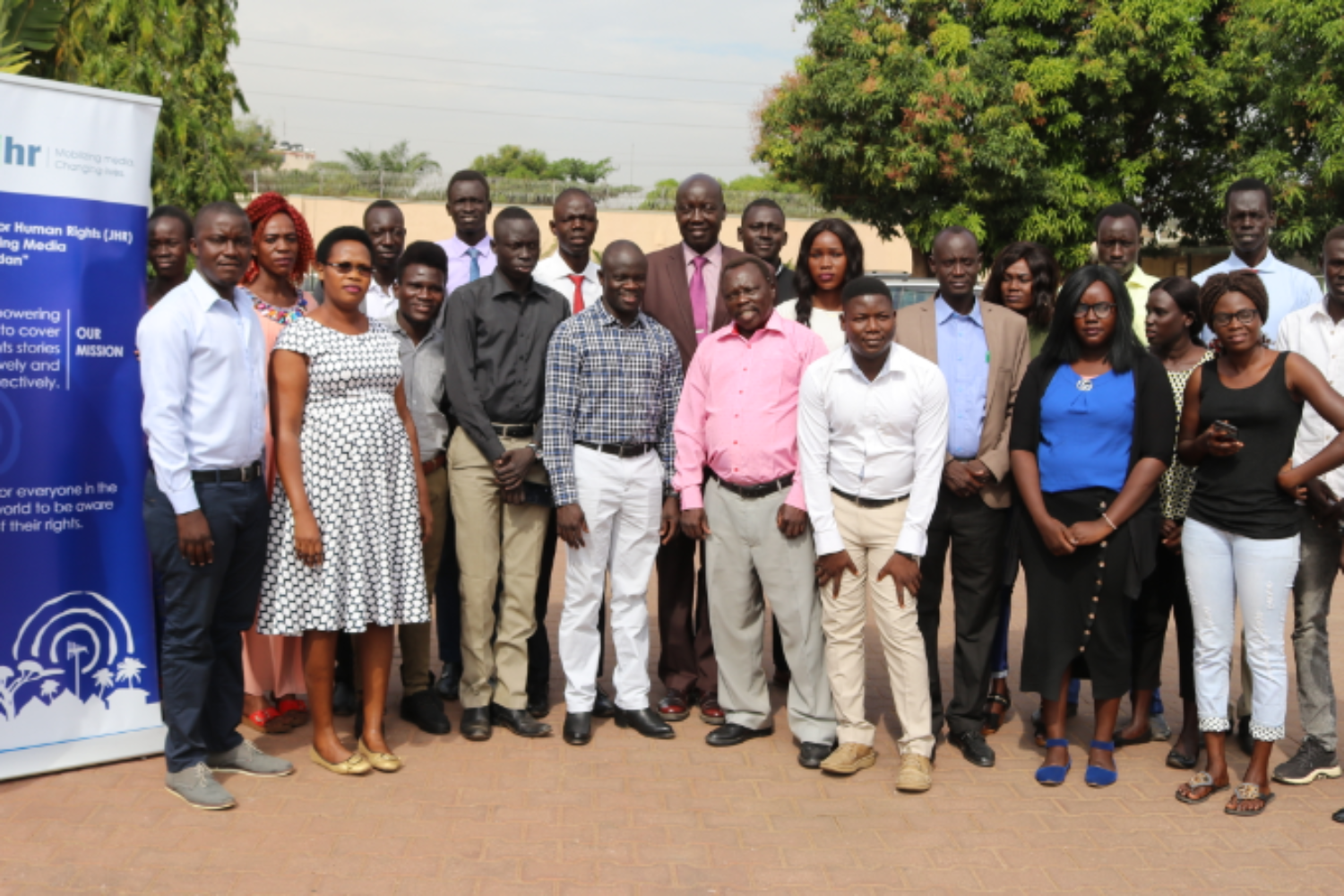By Khamis Cosmas Lokudu
10th December 2019, journalists attended one day mentorship on reproductive health and rights organized by Journalist for Human Rights a leading Canadian media development organization operating in South Sudan to build the capacity of journalists in reporting about human rights issues.
Dr Alexander Dimiti director general in the National Ministry of Health told journalists that sexual and reproductive health encompasses health and wellbeing in matters related to sexual relations, pregnancies and births, It deals with the most intimate and private aspects of people’s lives which can be difficult to write about and discuss publically. As a result, the public often misunderstands many sexual and reproductive matters.
In addition, cultural sensitivities and taboos surrounding sexuality often prevent people from seeking sexual and reproductive health information, care and preclude governments from addressing the issues he believed.
According to Dimiti, Sexual and reproductive health profoundly affects the social and economic development of countries, when women die in childbirth and without an education, girls often marry and begin having children early, which can jeopardise their health and limit their opportunities to contribute to the development and productivity of their communities and countries.
Dr Dimiti appealed to the media houses and journalists to play a critical role in bringing sexual and reproductive health matters to the attention of people who can influence public health policies. this is because many of these influential people read news reports and listen to daily news broadcasts and their opinions are shaped by those reports.
Occasionally a single news report can spur a decision maker to act more often, however, a continuous flow of information is needed to educate diverse audiences about issues and inform public policy debates. Journalists who can write and speak knowledgeably about sexual and reproductive issue can contribute to improved public policies and bring taboo subjects out in the open so that they can he discussed
He concludes saying, sexual and reproductive health is internationally recognized as a universal human right and it was first defined in the Programme of action of the United Nations in 1994 International Conference on Population and development. Reproductive health is a state of complete physical, mental and social well-being and not merely the infirmity, in matters related to reproductive system and to its functions and processes he stressed.
